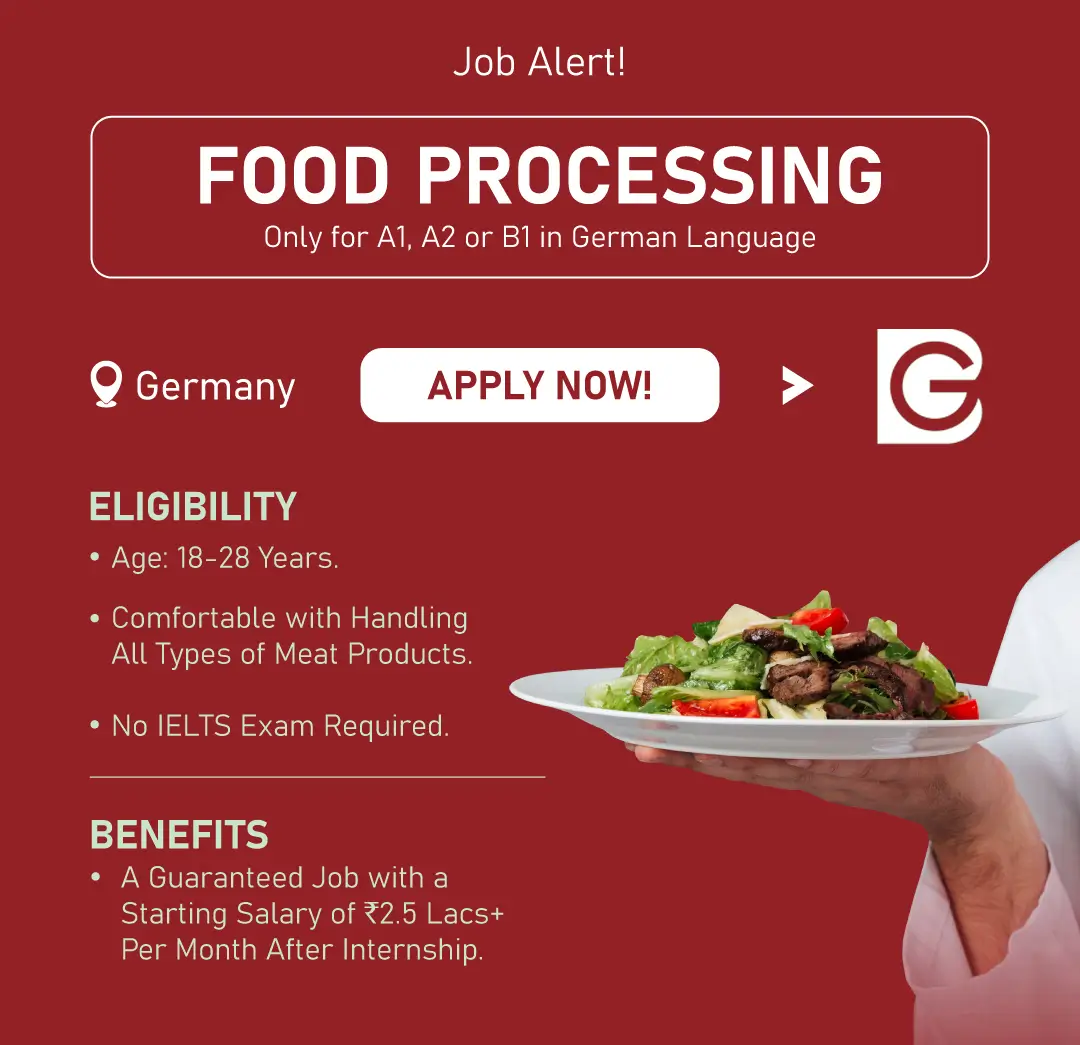OVERVIEW OF THE PROFESSION
The food processing industry (Lebensmittelverarbeitung) specializes in producing and processing raw ingredients into finished products using mechanical, thermal, chemical, and biological methods. This sector is central to the modern food supply chain, ensuring product safety, quality, convenience, and long-term preservation.

JOB DESCRIPTION
- Receiving Raw Materials: Receiving and sorting fresh ingredients like meat, vegetables, milk, and grains.
- Primary Processing: Cleaning, cutting, grinding, mixing, cooking, steaming, drying, frying, and fermenting.
- Operating Equipment: Operating industrial machinery such as packaging machines, dryers, and sterilizers.
- Packaging and Labeling: Packaging products and applying labels according to standards.
- Quality Control: Measuring moisture and pH levels, performing sensory checks, and taking samples for lab testing.
- Food Safety and Hygiene: Ensuring workshop cleanliness and sanitation according to HACCP standards.
- Production Records: Maintaining production logs, reporting errors, and inventorying goods.
SECTOR DEMAND IN GERMANY
- The food industry is the fourth largest manufacturing sector in Germany.
- There are over 600,000 employees and 6,000 companies in the industry.
- The average age of workers is increasing, leading to a significant labor shortage.
- This sector requires a large number of skilled and highly specialized workers.
- There are many job opportunities, a clear career path, and the potential for a long-term professional future.
WORKING CONDITIONS & CHALLENGES
- Work Culture: Punctual and process-oriented. Direct communication can be challenging for newcomers.
- Physical Demands: Requires long periods of standing and repetitive tasks. Shift work, including nights and weekends, is common.
- Work Environment: Can be cold (in frozen food workshops) or hot (in canning factories), with high humidity.
- Climate & Weather: Germany’s long, cold, and snowy winters can be challenging. Rapid weather changes can lead to fatigue.
- Cost of Living: Varies from €900–€1,200 per month in major cities. Initial costs for documentation and travel are around €3,200–€5,000.
- Integration: Being far from home requires self-management. It is crucial to proactively engage with colleagues and the local community to avoid feeling isolated.
